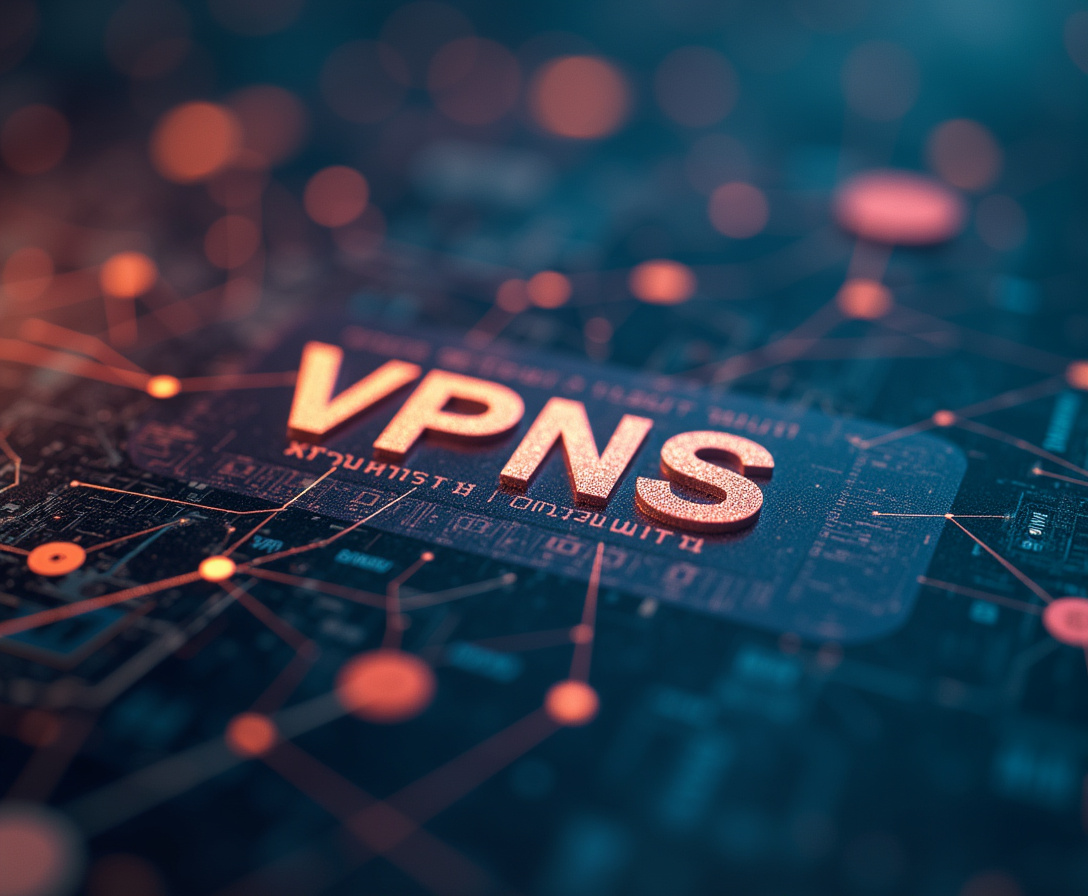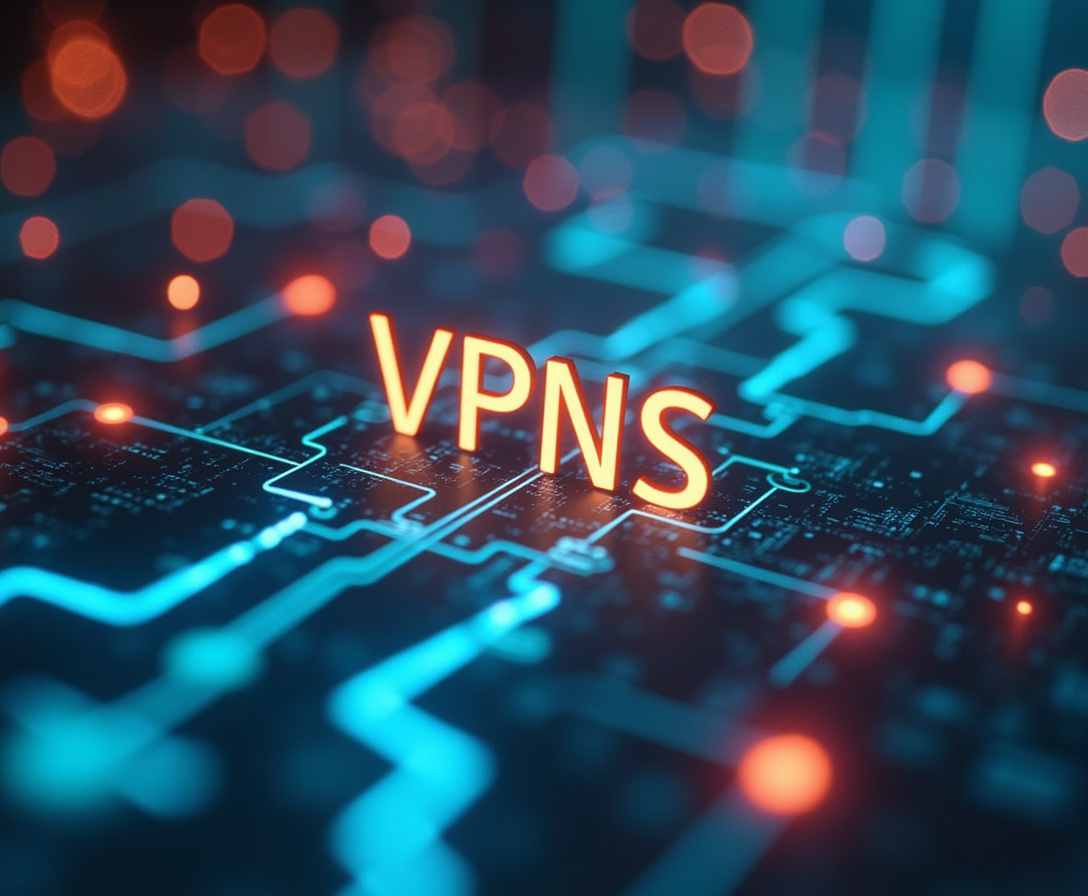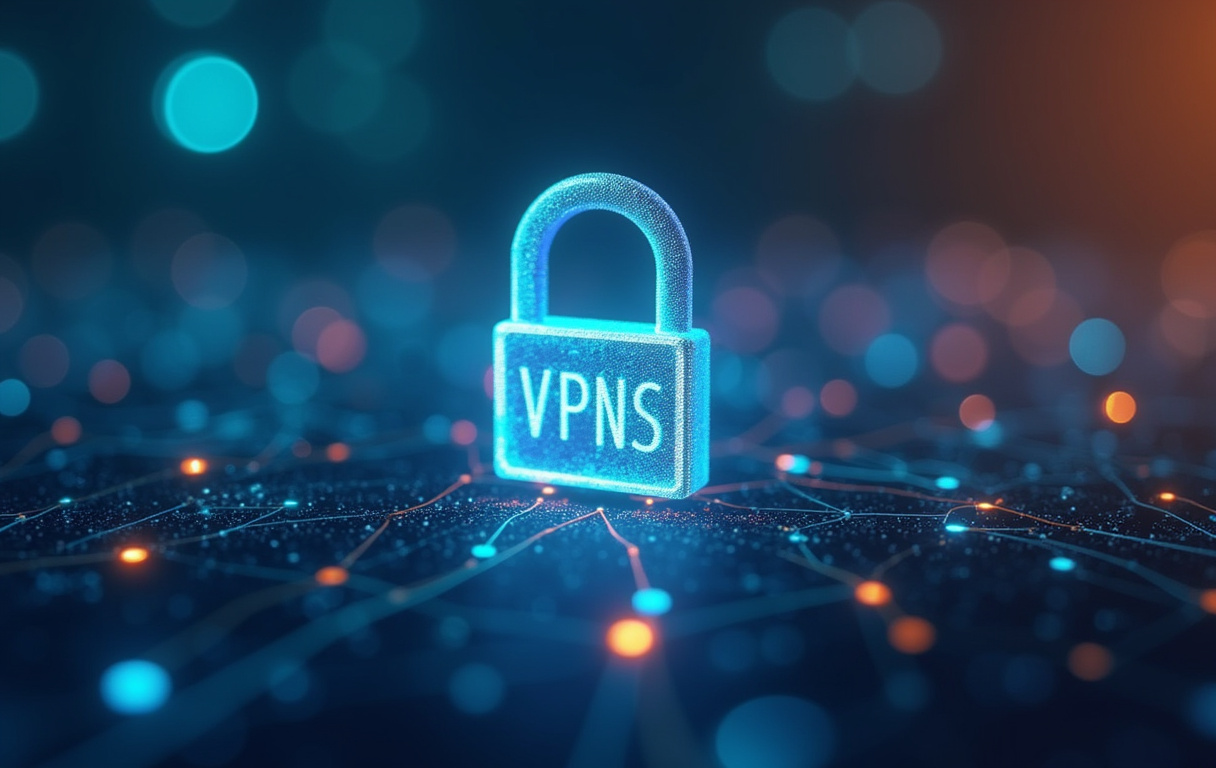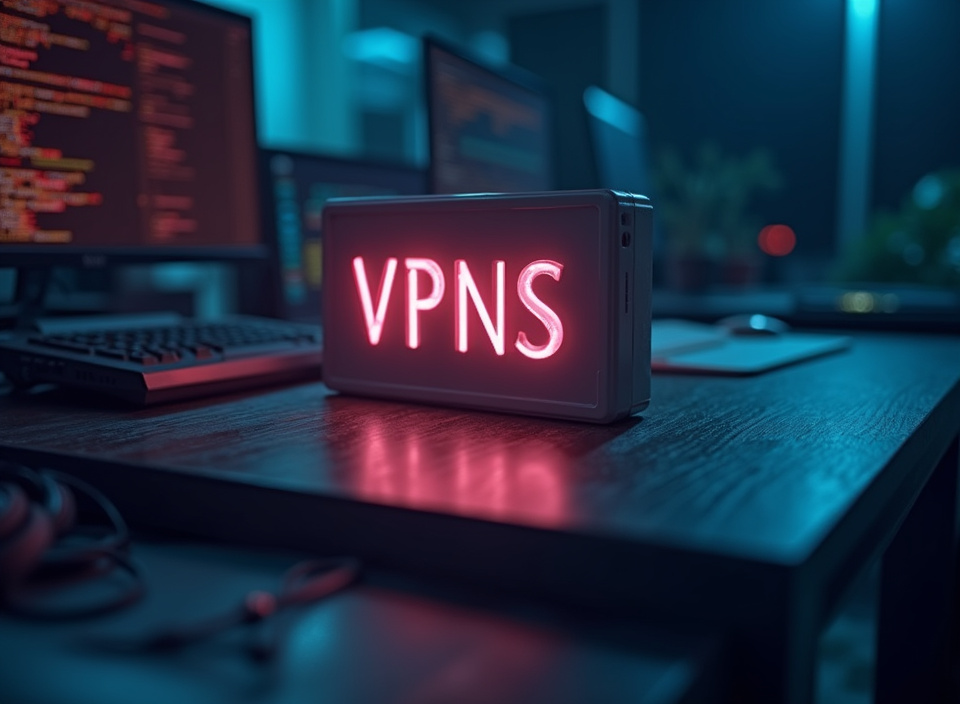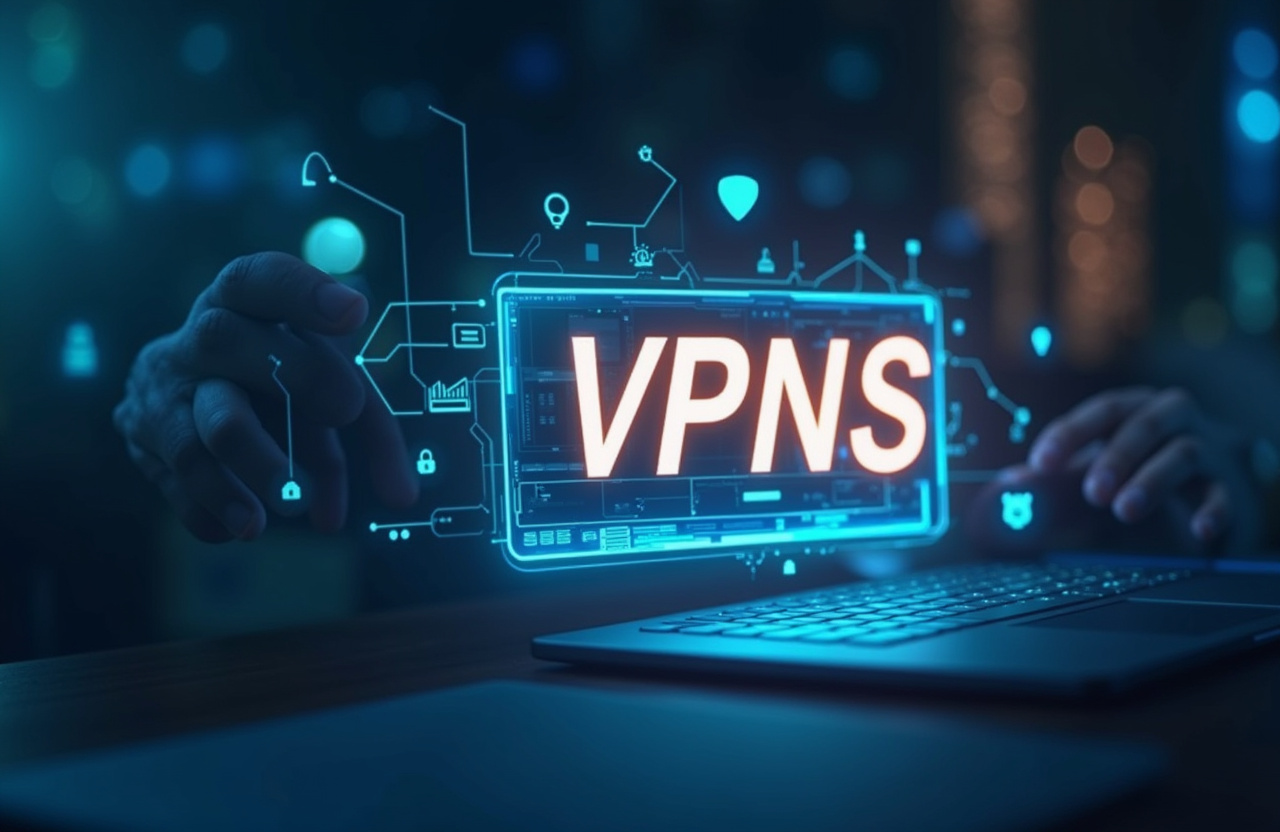VPNs for Independent Game Studios: Protecting Creative Assets
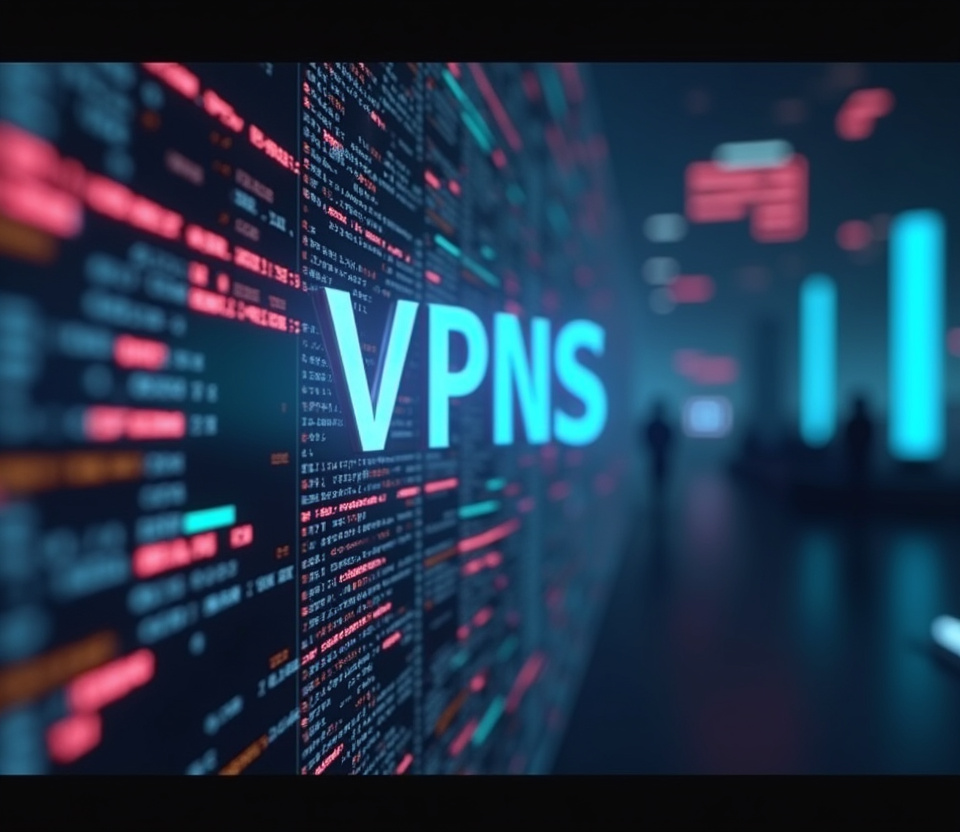
Table of Contents
The digital landscape presents both unprecedented opportunities and significant challenges for independent game studios. On one hand, the global reach of online platforms allows small teams to connect with audiences worldwide, distribute their games digitally, and collaborate with talent dispersed across different geographical locations. On the other hand, this interconnectedness brings increased exposure to cyber threats, jeopardizing the security of vital creative assets, sensitive collaboration data, and the very intellectual property upon which their business model relies.
In this environment, a robust security infrastructure is no longer a luxury but an absolute necessity for independent game studios seeking to protect their work, their reputation, and their future. A Virtual Private Network (VPN) serves as a powerful tool in mitigating these risks, providing a secure and encrypted connection for all online activities, effectively shielding sensitive data from prying eyes and malicious actors. For indie game developers, VPNs aren't just about online privacy; they're about safeguarding the core of their creative endeavors and ensuring the smooth and secure flow of information critical for game development.
The vulnerability of independent studios often stems from limited resources and a focus primarily on the creative process. Without dedicated IT security personnel and robust security protocols, they become attractive targets for cyberattacks that can range from intellectual property theft to data breaches and ransomware attacks. The consequences of such breaches can be devastating, potentially leading to project delays, financial losses, reputational damage, and even the demise of the entire studio.
Implementing a 'game studio VPN' solution is a proactive step towards addressing these vulnerabilities, providing a foundational layer of security that protects against a wide range of online threats. This solution isn't a one-size-fits-all scenario. Each studio has unique security needs based on its size, the type of games it develops, its collaboration practices, and the level of sensitivity of its intellectual property.
Therefore, a careful assessment of potential risks and vulnerabilities is essential to selecting and configuring a VPN solution that effectively addresses the specific needs of the studio. This assessment should consider factors such as the types of data that need to be protected ('collaboration data', 'intellectual property'), the geographical distribution of the team, the level of access control required, and the necessary level of encryption to maintain data confidentiality and integrity. For instance, a studio working on a highly confidential, unannounced title will have significantly stricter security requirements than a studio developing a game with publicly available assets.
Similarly, a studio with a large, geographically dispersed team will need a VPN solution that can handle a higher volume of traffic and provide secure access from multiple locations. The risk assessment should also consider the potential impact of different types of cyberattacks, such as data breaches, ransomware attacks, and denial-of-service attacks. Understanding the potential consequences of each type of attack can help the studio prioritize its security efforts and allocate resources accordingly.
Furthermore, it’s vital to go beyond simply implementing a VPN. Educating team members about security best practices is paramount for creating a strong security culture. This includes training on the importance of strong passwords, the dangers of phishing attacks, the proper handling of sensitive data, and the correct usage of the VPN itself.
A well-informed team is the first line of defense against cyber threats, ensuring that the VPN is used effectively and that potential vulnerabilities are minimized. Security awareness training should be ongoing, providing team members with regular updates on the latest threats and best practices. Simulated phishing attacks can be a valuable tool for testing team members' awareness and identifying areas where additional training is needed.
Establishing clear security policies and procedures is essential to ensure that all team members understand their responsibilities and adhere to security protocols. These policies should cover topics such as password management, data handling, remote access, and incident response. The security policies should be documented and readily accessible to all team members and reviewed and updated regularly to reflect changes in the threat landscape and the studio's operations.
Integrating a 'VPN for gaming' into the studio's infrastructure, while primarily focused on protecting creative assets, can also offer benefits during testing and gameplay phases, allowing for secure access to game servers and the simulation of player experiences from different geographical locations. This dual functionality enhances both security and the development process.
The primary benefit of a 'game studio VPN' is the secure encryption of all internet traffic. This encryption creates a protected tunnel between the studio's devices and the VPN server, making it virtually impossible for unauthorized parties to intercept and decipher sensitive data transmitted online. This is especially crucial when team members are working remotely or connecting to public Wi-Fi networks, which are notoriously insecure and often targeted by hackers.
The use of strong encryption protocols, such as AES-256, ensures that even if data is intercepted, it remains unreadable without the encryption key. This level of protection is critical for safeguarding not only finished game builds but also the underlying source code, game assets, design documents, and other vital components of the development process. Imagine a scenario where a level designer is working remotely from a coffee shop, connected to a public Wi-Fi network.
Without a VPN, their internet traffic is vulnerable to eavesdropping, potentially exposing sensitive design documents or even early builds of the game to malicious actors on the same network. A VPN encrypts this traffic, making it unreadable to anyone who might be trying to intercept it. Encryption alone, however, is not sufficient to guarantee complete security.
A robust authentication system is also essential to ensure that only authorized team members can access the VPN and the resources it protects. Multi-factor authentication (MFA), which requires users to provide multiple forms of verification (e.g., password, security code from a mobile app, biometric scan), adds an extra layer of security, making it significantly more difficult for unauthorized individuals to gain access, even if they have obtained a valid password. A strong password policy, combined with MFA, significantly reduces the risk of unauthorized access due to compromised credentials.
Regularly auditing user access and implementing role-based access control (RBAC) further strengthens security, ensuring that team members only have access to the resources they need to perform their job functions. This minimizes the potential impact of a compromised account, limiting the attacker's ability to access sensitive data. For example, a junior artist may only need access to asset repositories, while a senior programmer may require access to the core game engine code.
Restricting access based on roles helps prevent accidental or malicious data breaches. 'Creative asset security' is paramount in the gaming industry, where intellectual property holds immense value. Protecting these assets requires a multi-layered approach that includes not only encryption and authentication but also robust access controls and data loss prevention (DLP) measures.
Access control policies should be carefully designed to restrict access to sensitive assets based on user roles and responsibilities. For example, only lead designers might be allowed to modify core game mechanics, while junior artists might only have access to create textures and models. Version control systems, like Git, should be integrated with the VPN to provide an additional layer of security and track changes to game assets.
These systems allow for easy rollback to previous versions in case of accidental or malicious modifications. DLP solutions can help prevent sensitive data from leaving the studio's network without authorization. These solutions can monitor network traffic and identify sensitive data being transmitted, such as source code or unreleased game builds, and block or alert administrators to potential data breaches.
DLP policies should be tailored to the specific needs of the studio and regularly reviewed and updated. Furthermore, it is essential to implement regular backups of all critical data. These backups should be stored securely, preferably in multiple locations, including offsite storage, to protect against data loss due to hardware failure, natural disasters, or ransomware attacks.
Regularly testing the backup and recovery process is crucial to ensure that data can be quickly and reliably restored in the event of a disaster. Implementing a robust backup strategy is a critical component of any comprehensive security plan. In addition to technical measures, legal protections, such as copyrights and trademarks, are essential for protecting 'intellectual property'.
Properly registering copyrights for game assets and trademarks for game titles and logos can provide legal recourse against infringement and ensure that the studio has the right to protect its creative work. Legal counsel specializing in intellectual property law can provide valuable guidance on protecting the studio's creative assets. The strategic use of a 'game studio VPN' can be further augmented by incorporating watermarking techniques on in-development assets to trace unauthorized leaks, strengthening the studio's defense against 'intellectual property' theft.
Secure 'collaboration data' exchange is critical for the efficient operation of independent game studios, especially those with team members working remotely or distributed across different locations. VPNs provide a secure and encrypted channel for sharing files, communicating through voice and video conferencing, and accessing shared resources, ensuring that sensitive information remains protected from unauthorized access. However, it is important to choose VPN solutions that support the specific collaboration tools used by the studio and that offer sufficient bandwidth and performance to avoid hindering productivity.
Many game studios rely on cloud-based collaboration platforms for tasks such as project management, version control, and asset sharing. A VPN can secure the connection to these platforms, preventing unauthorized access to sensitive project data. When selecting a VPN, it's crucial to consider its compatibility with these tools and its ability to maintain consistent performance.
Collaboration tools often handle large files, such as 3D models, textures, and audio assets. The VPN needs to be capable of handling this traffic without introducing significant delays or bottlenecks. Implementing quality of service (QoS) policies can help prioritize traffic for collaboration tools, ensuring that they receive the necessary bandwidth and performance.
Securing 'collaboration data' also entails managing access rights within these collaborative platforms. Integrating the VPN's authentication system with the platform's access control features ensures that only authorized team members can access specific projects and assets. This granular access control minimizes the risk of accidental or malicious data leaks.
Utilizing file-sharing services that offer end-to-end encryption, in conjunction with a VPN, adds an additional layer of security. Beyond securing data transfer and access, a VPN can also contribute to maintaining the integrity of the data itself. By ensuring a secure connection, the VPN helps prevent man-in-the-middle attacks, where malicious actors intercept and modify data in transit.
This is particularly important when team members are collaborating on critical game assets, such as source code or design documents. Regular integrity checks, using checksums or other verification methods, can further ensure that data has not been tampered with. These checks should be performed on critical files after they have been transferred or modified.
For voice and video conferencing, a VPN provides a secure and encrypted channel for communication, preventing eavesdropping and ensuring the confidentiality of sensitive discussions. Selecting a VPN that supports secure communication protocols, such as Secure Real-time Transport Protocol (SRTP), further enhances security. Educating team members about the importance of using secure communication channels and avoiding the sharing of sensitive information over unencrypted channels is also crucial.
The 'VPN for gaming' even has a role to play here. By providing a secure tunnel, it can be used during collaborative playtesting sessions with remote team members, safely simulating the end-user experience and ensuring that early gameplay insights are not exposed. This added layer ensures the security of pre-release gameplay mechanics and ensures that the competition isn't getting a sneak peek.
Regular security audits of the VPN infrastructure and collaboration platforms are essential to identify and address potential vulnerabilities. These audits should be performed by independent security experts and should cover all aspects of the security infrastructure, including network configuration, access controls, and data handling practices. The results of the audits should be used to improve security policies and procedures and to address any identified vulnerabilities.
In the case of independent game studios collaborating with external partners such as freelance audio designers or artists, integrating external VPN accesses, with clearly defined permission protocols, is important in assuring that 'creative asset security' is not breached.
Beyond the core benefits of encryption and secure access, a 'game studio VPN' can offer additional features that enhance security and improve the overall development workflow. One such feature is the ability to mask the studio's IP address, which can help protect against denial-of-service (DoS) attacks and other types of network-based attacks. By routing traffic through the VPN's servers, the studio's actual IP address is hidden, making it more difficult for attackers to target their network.
This is particularly important for studios that host their own game servers or other critical infrastructure. Regular changes of the VPN server can be put in place, to further obfuscates the location of the game studio’s infrastructure. Another valuable feature is the ability to bypass geographical restrictions, which can be useful for accessing content and services that are not available in the studio's location.
This can be helpful for researching competitor games, testing game builds in different regions, or accessing development tools and resources that are geographically restricted. The use of this feature, however, should be carefully considered to ensure compliance with all applicable laws and regulations. Ethical considerations arise when bypassing regional restrictions, particularly in markets where certain content is censored or restricted.
Transparency in the VPN's logging policies is also of paramount importance. A 'no-logs' VPN ensures that the provider does not track or store any information about the studio's online activity, providing an extra layer of privacy. However, it is important to carefully review the VPN provider's privacy policy and terms of service to ensure that they are truly committed to not logging user data.
Implementing a kill switch is a crucial security feature for a 'game studio VPN'. A kill switch automatically disconnects the studio's internet connection if the VPN connection drops, preventing any unencrypted data from being transmitted over the internet. This ensures that sensitive data is always protected, even in the event of a VPN failure.
The kill switch should be configured to activate automatically and to block all internet traffic until the VPN connection is re-established. Split tunneling is another feature that can be useful in certain situations. Split tunneling allows the studio to route some traffic through the VPN while routing other traffic directly to the internet.
This can be helpful for improving performance for non-sensitive tasks, such as browsing the web or streaming video, while still protecting sensitive data with the VPN. However, it is important to carefully configure split tunneling to ensure that sensitive data is always routed through the VPN. The selection of a VPN protocol is another critical aspect of ensuring 'creative asset security'.
OpenVPN and WireGuard are generally considered to be the most secure protocols, offering strong encryption and robust performance. PPTP and L2TP/IPsec are older protocols that are generally considered to be less secure and should be avoided. The chosen protocol impacts the overall speed and security of the VPN connection, impacting the experience of those who are using it day to day.
Monitoring the VPN's performance and usage is essential to ensure that it is functioning properly and that it is not being used in a way that violates the studio's security policies. This can be done using VPN monitoring tools or by analyzing VPN logs. Regular reviews of the VPN's configuration and security settings are also important to ensure that they are aligned with the studio's security needs and that they are up-to-date with the latest security best practices.
Furthermore, integrating the 'VPN for gaming' network with Intrusion Detection and Prevention Systems or IDPS, ensures that the network traffic is analyzed for malicious behavior.
In conclusion, implementing a 'game studio VPN' is a critical step for independent game studios looking to protect their 'creative asset security', 'collaboration data', and 'intellectual property'. While the initial setup and configuration may require some technical expertise, the long-term benefits of increased security and reduced risk far outweigh the costs. By choosing a VPN solution that meets their specific needs, implementing strong security policies and procedures, and educating their team members about security best practices, independent game studios can create a secure and resilient environment that allows them to focus on creating amazing games without worrying about cyber threats.
The decision to invest in a 'game studio VPN' should be viewed as a strategic investment in the long-term success and sustainability of the studio. The cost of a data breach or intellectual property theft can be far greater than the cost of implementing and maintaining a VPN solution. By proactively addressing security vulnerabilities, independent game studios can protect their reputation, maintain the trust of their players, and ensure that their creative work is protected from unauthorized use.
As the threat landscape continues to evolve, it is important for independent game studios to stay informed about the latest security threats and best practices. Regularly reviewing and updating their security policies and procedures, and investing in ongoing security awareness training for their team members, is essential for maintaining a strong security posture. Engaging with the broader security community and participating in industry forums and conferences can also provide valuable insights and guidance.
Moreover, compliance with data privacy regulations, such as GDPR (General Data Protection Regulation) or CCPA (California Consumer Privacy Act), is also critical. A VPN can assist in achieving compliance by ensuring that data is transmitted securely and that access to sensitive data is controlled. However, it is important to understand the specific requirements of these regulations and to implement appropriate policies and procedures to ensure compliance.
Seeking legal counsel can provide valuable guidance on navigating the complex landscape of data privacy regulations. The strategic integration of a 'VPN for gaming' goes beyond mere security; it fortifies the studio's operational integrity, enabling secure remote work and promoting a culture of vigilance against digital threats. This proactive approach not only safeguards valuable assets but also empowers studios to innovate with confidence.
Selecting the appropriate 'game studio VPN' should include assessing aspects such as server locations. Selecting strategically located server locations allows the user to assess the game from multiple geographic locations. The implementation of the VPN should also be scalable, permitting the game studio to increase the number of VPN users as needed.
This agility ensures that the VPN does not become a bottleneck in the operational workflow. Ultimately, the successful implementation of a VPN solution requires a holistic approach that encompasses technology, policy, and people. By investing in the right technology, establishing clear security policies and procedures, and empowering their team members with the knowledge and skills they need to protect themselves and the studio, independent game studios can create a secure and thriving environment for creativity and innovation.
The investment in solidifying this crucial security layer is not just about preventing potential losses, it's about building a resilient foundation for future growth and creative success. The game studio needs to fully consider this process if they are to protect adequately the intellectual property, this will create a strong reliable security pipeline to future proof the studio.
Stay Updated
Get the latest VPN news, tips, and exclusive deals to your inbox.
